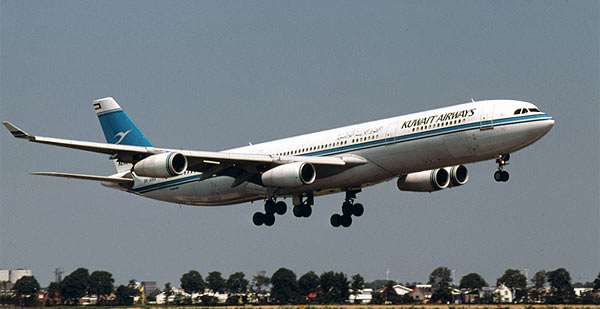 THE civil aeronautics regulators of Kuwait and the Philippines finally agreed on Tuesday the new Air Services Agreement (ASA) between the two countries.
THE civil aeronautics regulators of Kuwait and the Philippines finally agreed on Tuesday the new Air Services Agreement (ASA) between the two countries.Under the existing agreement between Kuwait and the Philippines, both countries were entitled to field up to six flights a week between both Manila and Kuwait. In the new pact, the number was raised to eight.
Porvenir Porciuncula, Deputy Executive Director and head of economic planning of the Civil Aeronautics Board (CAB), said that both Philippines and Kuwait have agreed to raise flight entitlements to a total of 29 flights from six per week.
8 flights for Manila
14 flights for Clark
7 flights for Cebu, Davao and other international points
A fifth freedom right was also given to flights from Clark, allowing carriers to pick up a passenger from Kuwait before flying to another destination in a third country. Presently, Kuwait Airways is prohibited from carrying passengers from Manila to Bangkok. Under the new agreement, the airline is allowed to carry passengers to Bangkok from Clark. In return, Kuwait allowed Philippine airlines fifth freedom rights to Europe except London.
Negotiations between the two countries hit a snag last October as both panels expressed different views related to a request by Kuwaiti Airways to mount unlimited flights between the two countries. The Philippine air panel, through the main opposition of Philippine Airlines, rejected Kuwait’s request to service Kuwait-Manila on an unlimited basis. Kuwait insisted on an open-skies arrangement. Kuwait and the Philippines entered and signed the first ASA in 1977.
The Philippine air panel includes representatives from Department of Foreign Affairs, Department of Tourism, Department of Trade and Industry, the local carriers and Clark Development Corp. The panel was headed by Transportation Undersecretary Doroteo A. Reyes.
The panel is slated to hold air talks with Bahrain on February 25 and 26, followed by negotiations with Australia and Brunei in March.
The country’s air panel has completed agreements with Russia, Japan, Hong Kong, Thailand, Macau, Canada, Finland, Cambodia, Iran and the Netherlands.
Latest data from Philippine Overseas Employment Administration (POEA) considers the Kingdom of Saudi Arabia, United Arab Emirates, Qatar, Kuwait, and Bahrain as the top five of the top 10 destinations of OFWs in the Mideast.
In 2008, some 61,164 Filipinos left for the Kingdom of Saudi Arabia alone . The remaining half were distributed by other Middle East countries such as the United Arab Emirates, Qatar, Kuwait, Oman and Bahrain that were able to absorb more than 66,000 Filipino workers.
No comments:
Post a Comment